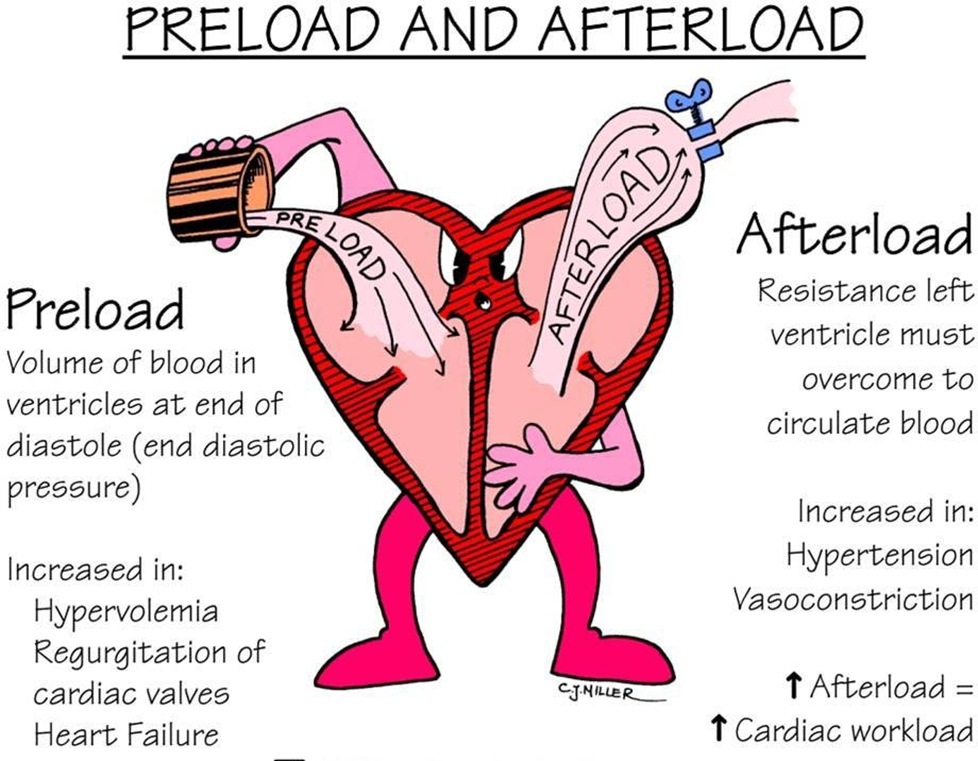A patient's blood gases show a pH of 7.53, PCO2 of 48, and HCO3 of 36 mEq/L. The nurse realizes that the acid-base disorder this patient is demonstrating is which of the following?
Respiratory Acidosis
Respiratory Alkalosis
Metabolic Alkalosis
Metabolic Acidosis
The Correct Answer is C
Choice A reason: Respiratory Acidosis is characterized by a low pH and a high PCO2, which is not the case here.
Choice B reason: Respiratory Alkalosis would involve a high pH and a low PCO2, which is not consistent with the patient's PCO2 level.
Choice C reason: Metabolic Alkalosis is indicated by a high pH and a high HCO3, which matches the patient's blood gas values.
Choice D reason: Metabolic Acidosis would show a low pH and a low HCO3, which is the opposite of this patient's presentation.

Nursing Test Bank
Naxlex Comprehensive Predictor Exams
Related Questions
Correct Answer is C
Explanation
Choice A reason: Fluid volume status affects preload, not afterload.
Choice B reason: Atrial contraction contributes to filling of the ventricles, not to afterload.
Choice C reason: Afterload is the resistance left ventricular must overcome to circulate blood, which is accurately described as resistance to blood flow.
Choice D reason: Myocardial compliance refers to the elasticity of the heart muscle, which affects how the heart fills, not the resistance it must overcome to eject blood.

Correct Answer is A
Explanation
Choice A reason: Hypertension is a well-known modifiable risk factor for stroke. Controlling blood pressure can significantly reduce the risk of having a stroke.
Choice B reason: A history of sickle cell disease is a genetic condition and is not considered a modifiable risk factor.
Choice C reason: Having a parent with cardiovascular disease is a non-modifiable risk factor as it is related to genetics.
Choice D reason: Age is a non-modifiable risk factor for stroke. The risk of stroke increases with age.
Whether you are a student looking to ace your exams or a practicing nurse seeking to enhance your expertise , our nursing education contents will empower you with the confidence and competence to make a difference in the lives of patients and become a respected leader in the healthcare field.
Visit Naxlex, invest in your future and unlock endless possibilities with our unparalleled nursing education contents today
Report Wrong Answer on the Current Question
Do you disagree with the answer? If yes, what is your expected answer? Explain.
Kindly be descriptive with the issue you are facing.
